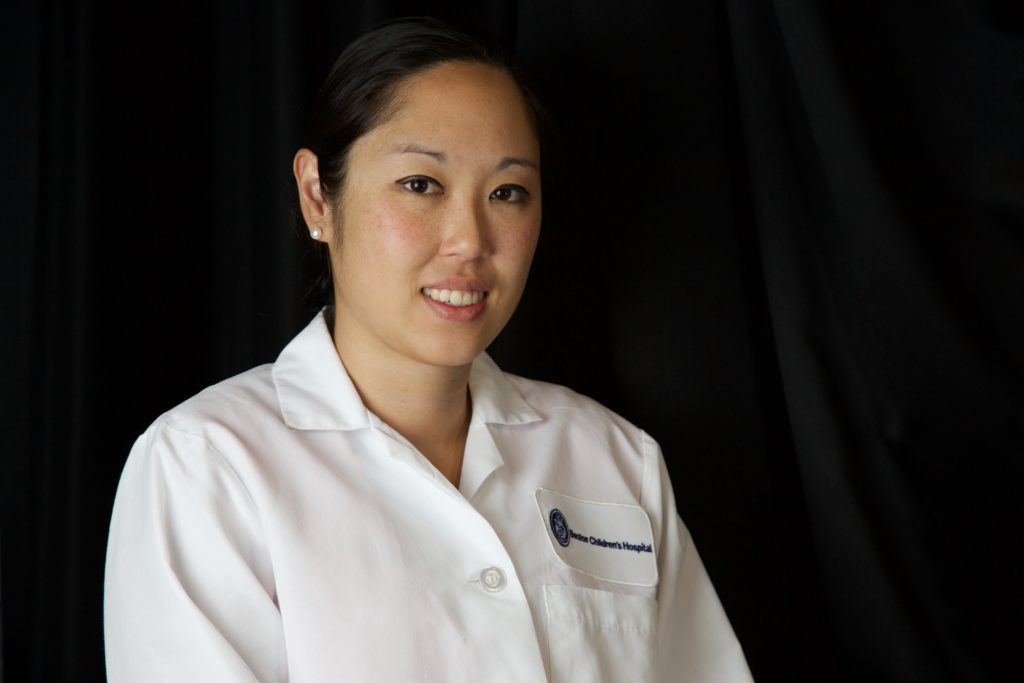 Angela Lek, a postdoctoral research fellow at Boston Children’s Hospital in Massachusetts, was awarded an MDA development grant totaling $180,000 over three years to use cutting-edge techniques and a novel approach to search for drug targets in facioscapulohumeral muscular dystrophy (FSHD).
Angela Lek, a postdoctoral research fellow at Boston Children’s Hospital in Massachusetts, was awarded an MDA development grant totaling $180,000 over three years to use cutting-edge techniques and a novel approach to search for drug targets in facioscapulohumeral muscular dystrophy (FSHD).
Please describe your current research.
FSHD is the most common autosomal dominant form of muscular dystrophy, yet we do not completely understand the genetics of the disease. Unlike most forms of muscular dystrophy, FSHD is unique and requires multiple genetic ‘hits’ in order to result in disease manifestation. Not all of these ‘hits’ have been resolved, which is why we do not understand why some relatives of FSHD patients that harbor the same permissive genetics are not affected.
We will be performing a genetic screen to identify these missing genetic links that appear to allow some individuals to be ‘resistant’ to FSHD. Using the latest in genome-editing technology, we will perform genetic modifications that result in systematically switching ‘on’ every gene, one by one, across the entire human genome. We hypothesize that one of these switches will result in reduction of FSHD-related cell toxicity, thus serving as a ‘modifier’ gene in FSHD that can potentially be used to ameliorate disease symptoms in patients.
The candidate modifier genes we find will be cross-referenced to genomic sequencing data derived from FSHD patients and their asymptomatic carrier relatives, as a possible explanation for their clinical variance. We will further validate these genes with functional rescue experiments in our zebrafish model of FSHD, and also measure their ability to change the molecular disease signature of FSHD patient cells.
Once validated, these target genes will serve as concrete targets for therapeutic targeting.
Is this your first MDA grant?
Yes, this is my first MDA grant. This grant enables me to pursue my own independent research ideas and to apply new technologies towards unsolved areas of muscular dystrophy research.
What inspired you to study FSHD?
The main reason I entered the field of muscular dystrophy research is because my husband (LGMD researcher Monkol Lek) was diagnosed with a form of this disease.
What is the focus of your research in FSHD, and why is it important?
My focus is to better understand the genetic pathways involved in the pathology of FSHD.
It’s important because despite being one of the most common forms of muscular dystrophy, the genetics of FSHD are not entirely solved. We don’t have a full understanding of how DUX4 gene expression in a few cells can result in a body-wide muscular dystrophy.
How will your research lead to treatments and cures?
Identification of the genes that are important to the pathogenesis of FSHD will enable us to test compounds that are known to modulate these pathways.
What do you feel people impacted by FSHD can have the most hope about with respect to research right now?
The new CRISPR gene-editing technology that has recently emerged and is being used in my project is very powerful. It allows us to systematically investigate the impact of each human gene under a particular setting, such as what happens when DUX4 is expressed, like in patient cells.
To learn more about how MDA research is accelerating treatments and cures for facioscapulohumeral muscular dystrophy, visit mda.org.
Until Dec. 31, 2017 your support can mean twice as much — an anonymous group of generous donors has agreed to match every donation made, dollar for dollar, up to $100,000. Thanks in advance for your contributions.
